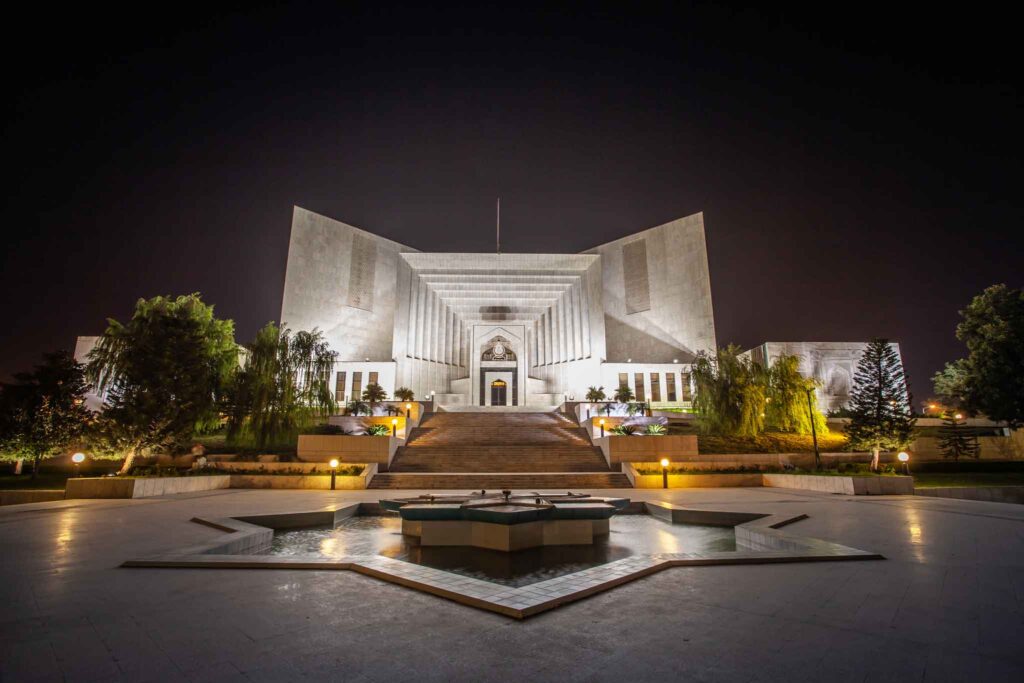In Pakistan, the phrase “justice delayed is justice denied” resonates deeply with citizens across all segments of society. Whether it is a land dispute in rural Punjab or a constitutional petition in Islamabad, the slow delivery of justice undermines public trust in one of the state’s most important institutions: the judiciary. With over two million cases pending in courts nationwide, judicial reform is not just desirable, it is essential. To restore faith in the legal system, Pakistan must pursue reforms that prioritise speed, transparency, and accountability.
The scale of the backlog is staggering. According to data from the Law and Justice Commission of Pakistan, there are currently more than 2.1 million unresolved cases across the country’s district, high, and supreme courts. In the Supreme Court alone, over 55,000 cases are pending, and in lower courts, delays can stretch across years, sometimes decades. This backlog has far-reaching effects. When a criminal trial drags on, both the accused and the victim are denied closure. In civil cases, disputes over property or inheritance are often passed down through generations without resolution. This situation is not just inefficient, it is unjust. One of the reasons for this delay is the shortage of judges. Pakistan has approximately 3,100 judges serving in the district judiciary, which translates to one judge for every 60,000 people. This is far below the recommended international average. With such overwhelming caseloads, judges often struggle to provide timely attention to each matter. Moreover, outdated case management systems and limited court infrastructure further slowdown proceedings. Speeding up justice requires not only appointing more judges but also introducing modern tools such as case tracking software, digital records, and better scheduling mechanisms. Transparency is another vital concern. For many ordinary Pakistanis, the court system appears intimidating and inaccessible. Legal processes are complicated, hearings are repeatedly postponed, and legal costs are high. Although efforts have been made to introduce online cause lists and e-court services, these systems remain limited in reach and are often underused by the public.
Access to justice must go beyond courtrooms, it must include public understanding of how and why decisions are made. The right to information, guaranteed under Article 19A of the Constitution, must be applied to judicial institutions as well, including the publication of clear, timely, and comprehensible judgments. In recent years, Pakistan’s judiciary has also played an increasingly active role in public affairs, through Suo Motu notices and high-profile constitutional interventions. While judicial activism has, in some instances, filled important gaps, such as in environmental regulation and enforcement of fundamental rights, it has also raised concerns about judicial overreach. The separation of powers is a foundational principle of democracy, and it is important for courts to maintain their role as interpreters of the law, not substitutes for elected policymakers. Reforms should include internal checks to ensure that Suo Motu powers are used selectively and responsibly, with transparent criteria. Accountability within the judiciary is equally important. While most judges serve with integrity and professionalism, there must be a system in place to address concerns when they arise. The Supreme Judicial Council (SJC), established to investigate allegations against judges, must operate with greater transparency and clarity. Public confidence in the judiciary depends not only on fairness in courtrooms but also on the assurance that judges themselves are held to high ethical standards. Upholding judicial independence should not come at the cost of shielding misconduct.
Pakistan can implement a range of practical reforms to enhance the effectiveness of its judiciary. Time limits for specific types of cases, especially family, commercial, and bail matters, can ensure faster outcomes. Introducing specialised benches, expanding the use of alternative dispute resolution (ADR), and improving legal education and judicial training can also help. Moreover, digitisation of court records and better access to legal aid for the poor would go a long way in making justice more inclusive and efficient.
In conclusion, judicial reform in Pakistan is not a technical issue limited to lawyers and judges. It is a national priority that touches every citizen. A justice system that is slow, opaque, and inaccessible not only weakens rule of law, but it also discourages people from seeking legal remedies altogether. Reforming the judiciary to make it faster, more transparent, and more accountable will strengthen both democracy and public confidence in state institutions. The moment for reform is not in the future, it is now.
Opinion Piece by Muhammad Jawad Rasool

